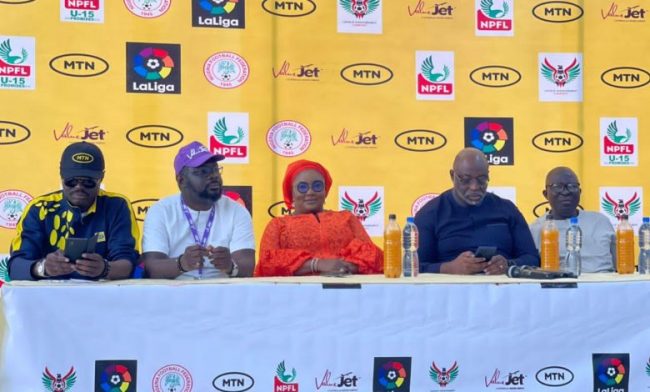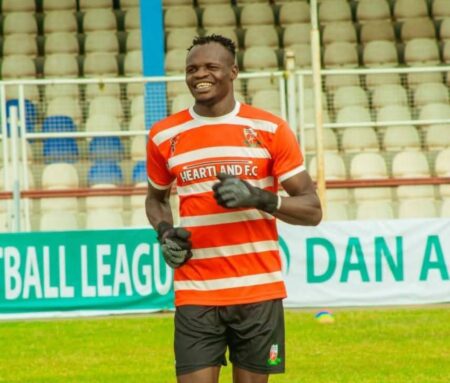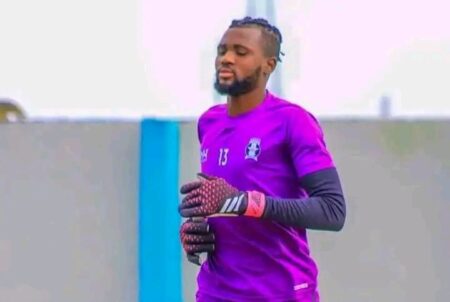While taking a casual stroll through the streets of Nigeria on a Saturday morning, before the sun’s rays are at its optimum strength, it is common to see groups of young men enjoying the game of football and displaying their sporting ability on improvised pitches. For some of these football lovers, such gatherings are merely a means of maintaining their fitness levels and having fun, but for many others who dream of making a profession out of the game, it is a stepping stone toward achieving their ambition to become some of the world’s most celebrated stars.
During the course of the game there is an abundance of exceptional football actions on display; deft dribbling skills, powerful shooting abilities, masterful goalkeeping and camera-worthy tackles matched with rare resilience on a hard playing surface. These are some of the recipes that make such viewings wholesome for any observer. In the evenings, the young footballers return, barefoot and still sore from the morning exercise but ready to dominate the patchy pitches again.
Such is the situation across several other developing nations in Africa, where millions of young people nurse ambitions to become national football stars while looking up to local heroes with similar grass to grace testimonies who are showing off their skills in Europe’s biggest leagues. Unfortunately, not many of these ambitions come to fruition. Factors including lack of investment in the development of young talents through the provision of quality playing kits, standard playing grounds, training or sponsorships stop the young ambitious athletes dead in their tracks.
These drawbacks have been widely blamed for their adverse effects on the development of African football. On the continent, there is a slow and unreliable transition of talents from the streets to the youngest age categories and national level. The same situation exists in the national leagues, where many football clubs have no functional or well-funded academy.
Related: Remo Stars Emerge Winner Of MTN/NPFL/La Liga U-15 Tournament
On a global level, the lack of talent development at the grassroots also has a trickle effect on Africa’s standing. Africa, for instance, is yet to advance beyond the Quarter-final stage of the World Cup since debuting in the highest football tournament in 1934 and boasting at least five representatives since 1998. Liberia’s George Weah also remains the only African player to have snagged the coveted Ballon d’Or trophy for the World Best Footballer title since its establishment in 1956. Expert football analysts are convinced that these shortcomings are not due to a lack of talent; but rather due to an unsustainable grassroot structure.
Interestingly, some organisations in the public and private sectors have committed to playing a role in developing emerging talent at the grassroots level in order to improve Africa’s position as a global football force. Conspicuously, in Nigeria, Africa’s most populous nation, telecommunications company MTN has been leading the pack in making new talent emerge from the grassroots, ensuring exposure for Nigerian youth football, and generally empowering young lovers of the beautiful game.
Among many notable initiatives, MTN’s recent partnership with the Nigeria Professional Football League (NPFL) and La-Liga for the Youth League starting from the 2022 NPFL football season significantly bolsters the strategic approach towards the development of grassroots football and youth empowerment in the country. The partnership is targeted at ensuring continuous local and international exposure for Nigerian youth football, as well as capacity building for players and coaching talent.
Since its launch in 2016, participants of the tournament include the U-15 youth teams of the 20 NPFL clubs, some of whom have gone on to represent the U-17 and U-20 national teams. Expectedly, MTN’s decision to enter the fray has caused expert football pundits to hail the youth league as having the potential to give rise to an array of talented footballers at the senior level within a short period.
With the MTN-backed Youth League structure, hopeful young footballers on street corners are ultimately provided with a clear and assured pathway to fulfil their dreams and ambitions, if they would proceed to test their mettle at the U-15 level.
MTN’s investment in the Youth League and advancement of developmental football in Nigeria comes as no surprise. Over the years, the telco has not relented in its desire to boost the country’s position as a global football force. Earlier in 2010, MTN won a $17 million deal to sponsor the Nigerian league, expanding its influence on the nation’s football terrain and in 2021, became the Official Communications Partner of the Super Eagles and other national teams, through yet another strategic N500 million deal with the Nigerian Football Federation (NFF).
Football, in a volatile socioeconomic landscape such as Nigeria, has the potential to unite the people. An estimated 80 million youth fans, active and latent, watch football according to available data. And with the youth representing about 65 percent of the country’s population, the round leather game presents a fantastic opportunity to ensure youth engagement and empowerment.
This is deservedly reflected in MTN’s sponsorship of the Nigerian Freestyle Football Championship, through which youths from every part of the country are encouraged to come together to show their footballing skills. Similarly, the company’s collaboration with top Premier League club, Arsenal to identify and coach the best young footballing talents in Nigeria, is also a reflection of its desire to uplift and empower young people through the world’s most popular sport.
A ponderous drawback in youth football development in Africa is a misconception that football and education don’t go well together. This causes many young men aspiring for a successful career in football on the continent to be faced with the tough decision of sacrificing their football ambitions for school, thereby missing out on life-changing opportunities.
Again, MTN effectively addresses these concerns through its MTN Football Scholar Program in Nigeria. A youth football camp, the program allows the country’s best student-athletes or football players with brilliant academic footing to earn scholarships to universities abroad.
If African football would attain the level of global recognition as its European counterpart, more organisations in the public and private sectors would need to contribute their quota by investing in sustainable grassroots football programmes for youth development.
With recent wins against Sierra Leone and the demolition of São Tomè being spearheaded by Victor Osimhen who is a proof of what it means to develop talent at a young age and with corporate bodies like MTN laying a clear pathway for an encouraging environment where football at the grassroots level can thrive and grow faster while keeping young footballers’ dreams alive, Nigeria is destined to enjoy a pipeline of talent in the near future.
Got what it Takes?
Predict and Win Millions Now












